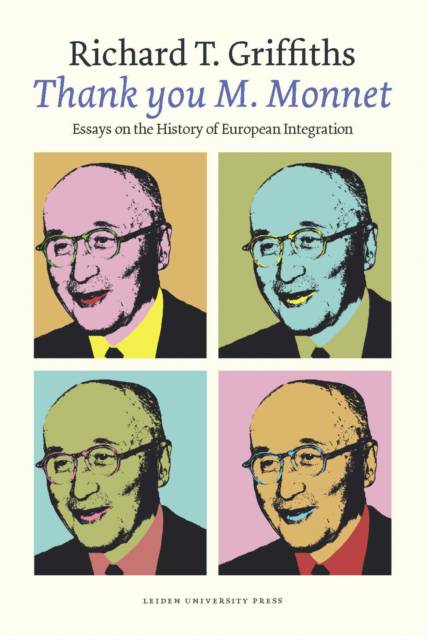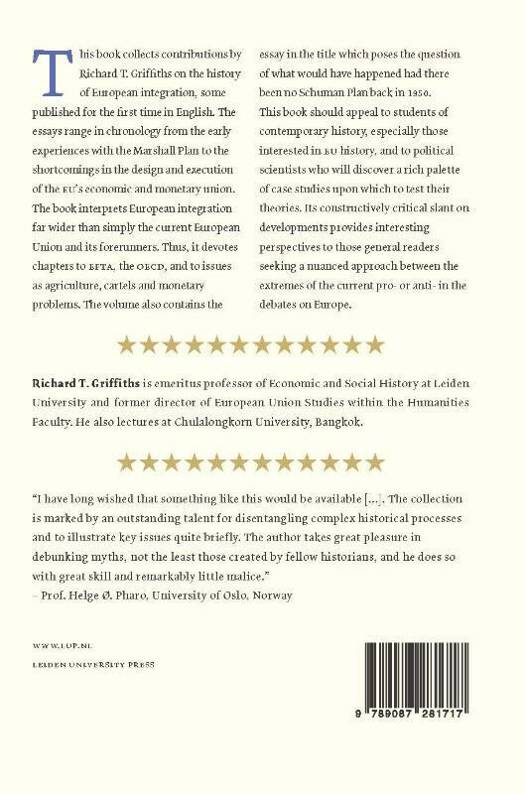
- Afhalen na 1 uur in een winkel met voorraad
- Gratis thuislevering in België vanaf € 30
- Ruim aanbod met 7 miljoen producten
- Afhalen na 1 uur in een winkel met voorraad
- Gratis thuislevering in België vanaf € 30
- Ruim aanbod met 7 miljoen producten
Zoeken


'Thank You M. Monnet'
Essays on the History of European Integration
Richard Griffiths
Paperback | Engels
€ 55,00
+ 110 punten
Omschrijving
This book collects contributions by Richard T. Griffiths on the history of European integration, some published for the first time in English. The essays range in chronology from the early experiences with the Marshall Plan to the difficulties and opportunities for the EFTA countries afforded by association with the EEC in the 1970s and 80s. The book interprets European integration far wider than simply the current European Union and its forerunners. Thus, it devotes chapters to EFTA, the OECD, and to issues as agriculture, cartels and monetary problems. The volume also contains the essay in the title which poses the question of what would have happened had there been no Schuman Plan back in 1950. This book should appeal to students of contemporary history, especially those interested in EU history, and to political scientists who will discover a rich palette of case studies upon which to test their theories. Its constructively critical slant on developments provides interesting perspectives to those general readers seeking a nuanced approach between the extremes of the current pro- or anti- in the debates on Europe.
Specificaties
Betrokkenen
- Auteur(s):
- Uitgeverij:
Inhoud
- Aantal bladzijden:
- 396
- Taal:
- Engels
Eigenschappen
- Productcode (EAN):
- 9789087281717
- Verschijningsdatum:
- 1/01/2013
- Uitvoering:
- Paperback
- Formaat:
- Trade paperback (VS)
- Afmetingen:
- 174 mm x 237 mm
- Gewicht:
- 662 g

Alleen bij Standaard Boekhandel
+ 110 punten op je klantenkaart van Standaard Boekhandel
Beoordelingen
We publiceren alleen reviews die voldoen aan de voorwaarden voor reviews. Bekijk onze voorwaarden voor reviews.












